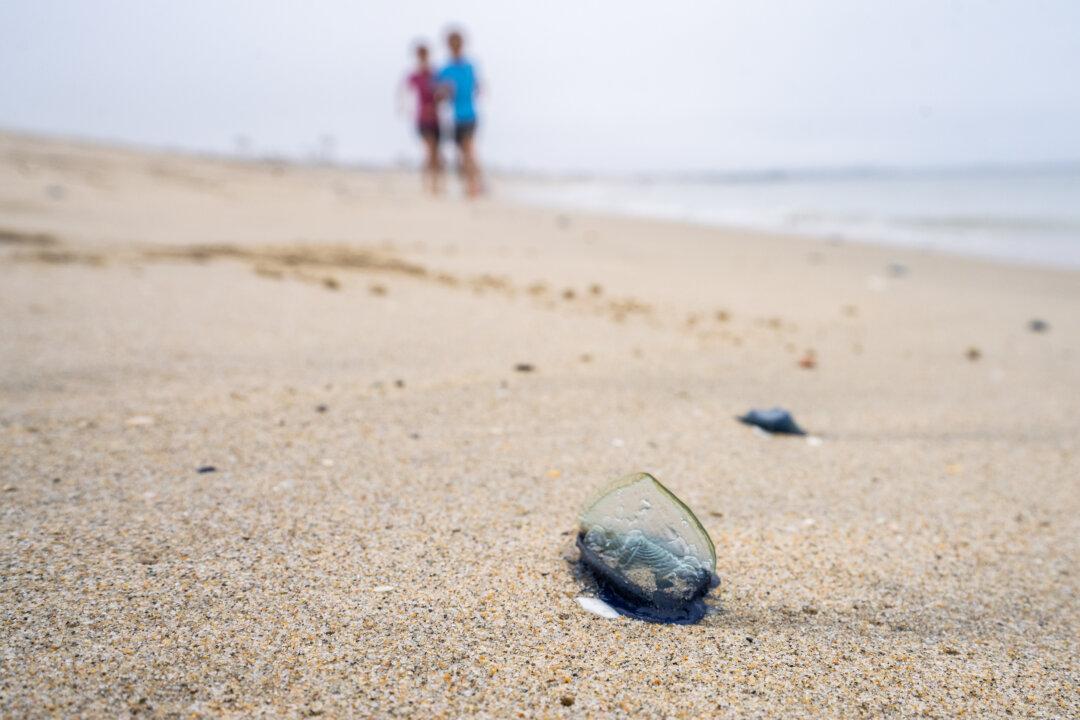Southern California has recently experienced an influx of palm-sized, blueish-purplish, jellyfish-like creatures washing ashore.
Although not considered dangerous to humans, a marine biologist who posted a video online after discovering the creatures off the California coast advised people to look but not touch them because they have tentacles that can slightly sting.





